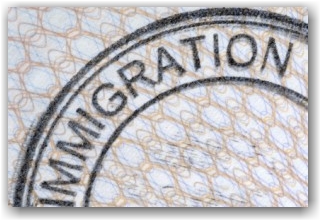Form I-9: ABC Tree Cuts $2,000,000 Deal With ICE | Immigration Compliance Group News
Tuesday, May 29th, 2012By: Timothy Sutton, Communications Editor
 For the Houston based ABC Professional Tree Service, Inc., firing non-compliant workers and implementing E-Verify was too little too late. Even after implementing E-Verify and firing hundreds of workers following an ICE audit in 2008, the Immigration Customs Enforcement agency of the Department of Homeland Security recently announced reaching a $2,000,000 non-prosecution agreement with ABC. Shockingly, the sum was based upon ICE’s estimation of profits ABC earned through illegal labor practices.
For the Houston based ABC Professional Tree Service, Inc., firing non-compliant workers and implementing E-Verify was too little too late. Even after implementing E-Verify and firing hundreds of workers following an ICE audit in 2008, the Immigration Customs Enforcement agency of the Department of Homeland Security recently announced reaching a $2,000,000 non-prosecution agreement with ABC. Shockingly, the sum was based upon ICE’s estimation of profits ABC earned through illegal labor practices.
After four years of investigation, ICE did not release how the $2,000,000 figure was reached. However, they did release an estimate that up to 30% of the 2,500 ABC employees were illegally employed. In a press release on May 18, 2012, ICE espoused ABC knowingly employed illegal workers after receiving “no-match letters” from the Social Security Administration. Additionally, on March 4, 2010, two years after the initial audit, ICE seized records from the ABC Birmingham office through a federally issued warrant. Undocumented employees in the Alabama office and working in the field were detained.
Typically Form I-9 violations lead to heavy monetary penalties, but in this case ICE chose to cut a non-prosecutorial deal. It is unclear from the information released whether or not the $2,000,000 sum is more or less than ABC would have faced in fines? But more importantly, businesses like ABC who are subject to years of audits and investigations, despite implementing E-Verify and discharging employees, have little bargaining power. Consequently, the best defense against an ICE audit is total compliance. Employers would be wise to hire a professional consultant to train staff, organize existing documentation and manage future non-compliance issues. The Immigration Compliance Group has the experience and resources necessary to protect your business from an ICE audit. Contact one of our immigration professionals at info@immigrationcompliancegroup.com or call 562 612.3996.



 By: Timothy Sutton, Communications Editor
By: Timothy Sutton, Communications Editor Amendments to The
Amendments to The 